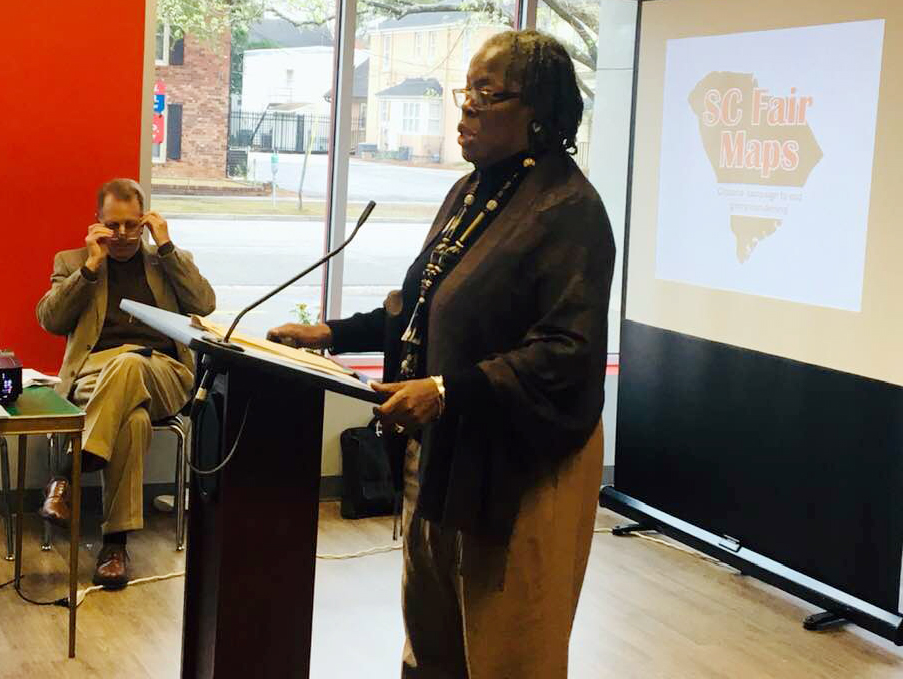“We conclude that partisan gerrymandering claims present political questions beyond the reach of the federal courts,” Roberts wrote. “Federal judges have no license to reallocate political power between the two major political parties, with no plausible grant of authority in the Constitution, and no legal standards to limit and direct their decisions.”
US Supreme Court Chief Justice John Roberts on court’s ruling on partisan gerrymandering, June 27, 2019
• • •
Those of us working on redistricting in South Carolina expected today’s Supreme Court ruling that found no constitutional argument for ordering the states to end partisan gerrymandering. Nothing in the U.S. Constitution gives feds the power to tell states how to run elections. Its Framers were reasonably worried about that kind of centralized power. They remembered King George.
So what are advocates of reform to do? After all, it is unlikely that the majority party will relinquish its control of state government by giving up its control of redistricting. And with 70% of our legislators facing no opposition, the 2020 election will essentially yield the same results as in 2016. In other words, there is no incentive for incumbents to draw district lines that don’t benefit themselves and their party.
That means it’s up to us. Here’s how we do it.
The Fair Maps SC Campaign proposes a plan to create a citizens commission to draw district lines. The plan was built on our understanding that the court can’t — and the majority party of the state legislature won’t — fix our broken system. In most states, including South Carolina, state constitutions don’t allow for ballot initiatives to let citizens put an amendment on the statewide general election ballot. The six states that have successfully implemented redistricting reforms in the past decade did so through statewide citizen initiatives.
The Fair Maps SC Campaign introduced legislation in 2018 to create a Citizens Redistricting Commission (H-3432 & S-254) and a Joint Resolution for a Constitutional Amendment (H-3390 & S-249) to put the question on the November 2020 ballot.
 Rep. Gilda Cobb-Hunter (at lecturn) and Sen. Mike Fanning (seated) are lead sponsors of legislation to create a citizens redistricting commission.
Rep. Gilda Cobb-Hunter (at lecturn) and Sen. Mike Fanning (seated) are lead sponsors of legislation to create a citizens redistricting commission.
The unique part of the Fair Maps SC campaign is the 46–county plan to get voters to sign a petition to their county councils to direct their county legislative delegation to put the amendment on the ballot. State law empowers 15% of county voters to put a resolution before council that they shall adopt or put on the ballot for voters to consider.
Since the majority of our legislature is elected in the party primaries, and the total primary turnout in the last presidential year election was just 13.9% — 8.6% Republicans, 5.3% Democrats — it follows that a campaign to let citizens draw draw district lines would easily garner more votes than the legislators or county council members got when elected.
A statewide Survey on Redistricting commissioned by the SC Progressive Network Education Fund was conducted in 2016 by the University of South Carolina Institute for Public Service and Policy Research. It found that a majority (64.5%) of respondents prefer that legislative districts be drawn by an independent commission rather than the General Assembly. When given additional information about gerrymandering, they were more likely to believe that the drawing of legislative districts is not done fairly. (Survey Summary.)
The growing momentum for empowering citizens to draw fair maps does not mean that legislators will easily give up power, but when their constituents show that more of them voted for the county resolution than voted for them in the primary, it creates a new political dynamic that they will not be able to ignore.
This campaign must be bipartisan and led by Republicans and Democrats if we are to gather the required 500,000 signatures from voters by the end of September. State and federal laws consider ballot intitatives to be nonpartisan. This campaign may use grant money to promote the fair maps proposal in churches, schools, and to civic organizations.
We are enlisting the leadership of former elected officials from both parties who are ready to admit that partisan gerrymandering is not good for our democracy and will work to fix our broken system with a citizens campaign for fair maps.
Meanwhile, we are spending the time between now and when the legislature reconvenes in January to engage and mobilize individual activists and organizations in communities across South Carolina to fight for fair maps. It’s an idea whose time has come. Please join us.
Details and toolkit at FairMapsSC.com. Join us on Facebook and Twitter.


We are with you! Gerrymandering is unfair, and un-democratic. It is a corrupt tool used by politicians to suppress voters and stay in power. We must put an end to it in our state, or our politicians will just continue to grow even more corrupt.